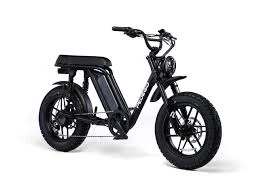
- Afrikaans
- Albanian
- Amharic
- Arabic
- Armenian
- Azerbaijani
- Basque
- Belarusian
- Bengali
- Bosnian
- Bulgarian
- Catalan
- Cebuano
- Corsican
- Croatian
- Czech
- Danish
- Dutch
- English
- Esperanto
- Estonian
- Finnish
- French
- Frisian
- Galician
- Georgian
- German
- Greek
- Gujarati
- Haitian Creole
- hausa
- hawaiian
- Hebrew
- Hindi
- Miao
- Hungarian
- Icelandic
- igbo
- Indonesian
- irish
- Italian
- Japanese
- Javanese
- Kannada
- kazakh
- Khmer
- Rwandese
- Korean
- Kurdish
- Kyrgyz
- Lao
- Latin
- Latvian
- Lithuanian
- Luxembourgish
- Macedonian
- Malgashi
- Malay
- Malayalam
- Maltese
- Maori
- Marathi
- Mongolian
- Myanmar
- Nepali
- Norwegian
- Norwegian
- Occitan
- Pashto
- Persian
- Polish
- Portuguese
- Punjabi
- Romanian
- Russian
- Samoan
- Scottish Gaelic
- Serbian
- Sesotho
- Shona
- Sindhi
- Sinhala
- Slovak
- Slovenian
- Somali
- Spanish
- Sundanese
- Swahili
- Swedish
- Tagalog
- Tajik
- Tamil
- Tatar
- Telugu
- Thai
- Turkish
- Turkmen
- Ukrainian
- Urdu
- Uighur
- Uzbek
- Vietnamese
- Welsh
- Bantu
- Yiddish
- Yoruba
- Zulu
Aug . 29, 2024 02:01 Back to list
E-Bike Market Insights - Trends, Innovations, and Future Prospects
The Growing E-Bike Market A Sustainable Transportation Revolution
The electric bike, or e-bike, has emerged as a significant player in the transportation sector, combining the functionality of traditional cycling with the innovative technology of electric motors. As urban populations swell and concerns about climate change intensify, the e-bike market is experiencing unprecedented growth, driven by an increasing demand for sustainable and efficient transportation solutions.
One of the primary factors contributing to the rise of e-bikes is the global shift towards environmentally friendly alternatives. As cities grapple with the negative impacts of pollution and traffic congestion, e-bikes offer a viable solution. They produce zero emissions during operation, making them an appealing choice for eco-conscious consumers. With governments around the world implementing policies to promote green transportation, including subsidies and tax incentives for e-bike purchases, the market is being stimulated from both the supply and demand sides.
The Growing E-Bike Market A Sustainable Transportation Revolution
The target demographic for e-bikes is also expanding. Initially popular among commuters looking for an alternative to traditional bicycles or cars, e-bikes are now attracting a diverse audience, including recreational riders, fitness enthusiasts, and even tourists exploring cities. This diversification is reflected in the widening range of e-bike models available on the market, catering to specific needs such as cargo transport, mountain biking, and urban commuting. Companies are continually innovating, with features like integrated GPS, smart connectivity, and advanced safety systems becoming standard in new models.
e bike market

Competition within the e-bike market is intensifying as established bicycle manufacturers and new startups alike vie for consumer attention. This competition is beneficial for consumers, as it drives innovation and keeps prices competitive. As production scales up, economies of scale are also likely to lead to decreased prices, making e-bikes more accessible to the average consumer.
However, challenges remain in the e-bike market. Safety concerns, particularly in urban environments, pose significant hurdles. Many cities are ill-equipped with the infrastructure necessary to accommodate the increasing number of cyclists. Additionally, there is a pressing need for regulatory frameworks to address issues related to speed limits, licensing, and insurance for e-bike users.
Despite these challenges, the future of the e-bike market looks promising. As society continues to embrace sustainability and technological innovation, the electric bike stands as a symbol of a more eco-friendly and efficient mode of transportation. With ongoing investments in infrastructure and technology, coupled with changing consumer attitudes toward mobility, e-bikes are poised to revolutionize how we think about getting around in our increasingly congested urban spaces.
In conclusion, the expansion of the e-bike market represents a significant shift in transportation norms. It offers a blend of practicality, eco-friendliness, and innovation—the perfect solution for the modern commuter. As we move toward a more sustainable future, electric bikes will undoubtedly play a critical role in reshaping urban mobility.
-
The Ultimate Kids' Four-Wheeler Experience
NewsJul.09,2025
-
The Ultimate Guide to Mountain Bikes: Gear Up for Your Ride
NewsJul.09,2025
-
The New Age of Cycling: Electric Bikes for Every Rider
NewsJul.09,2025
-
The Best Kids Bicycles: Ride in Style and Safety
NewsJul.09,2025
-
The Best 3-Wheel Scooters for Kids: Fun, Safety, and Adventure
NewsJul.09,2025
-
Revolutionize Your Ride: Affordable Electric Bikes
NewsJul.09,2025
-
Finding the Perfect Mountain Bike for Every Rider
NewsJul.09,2025



